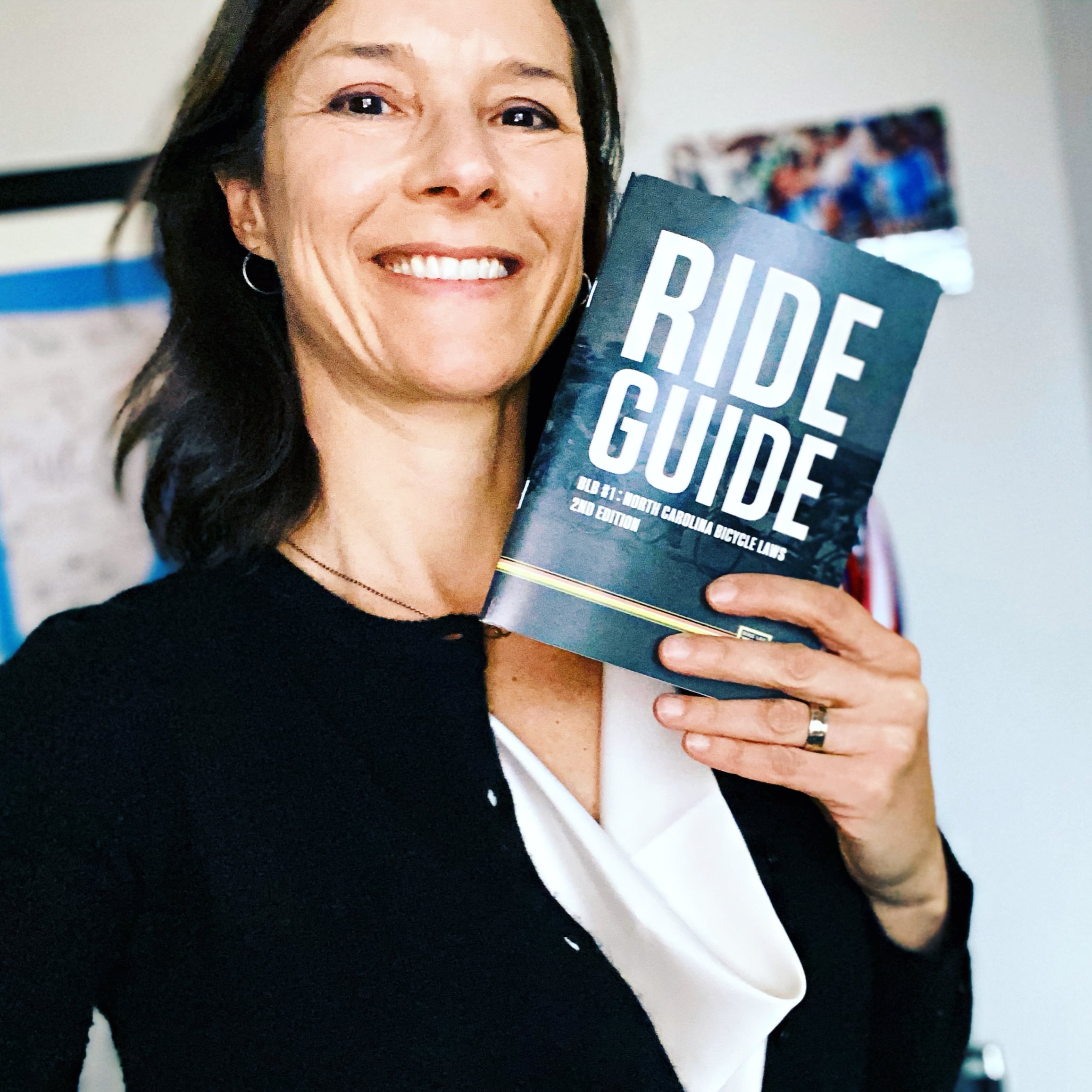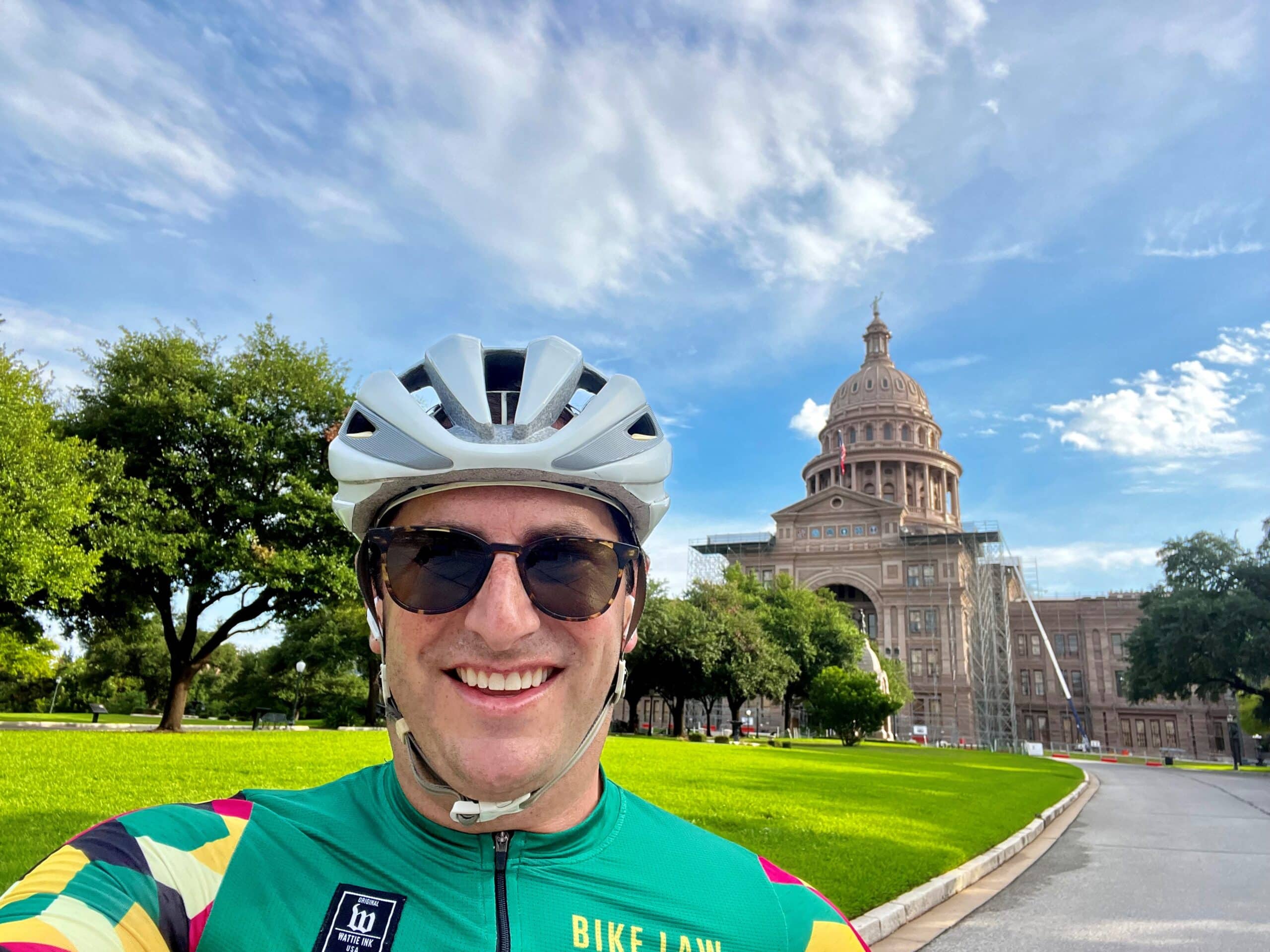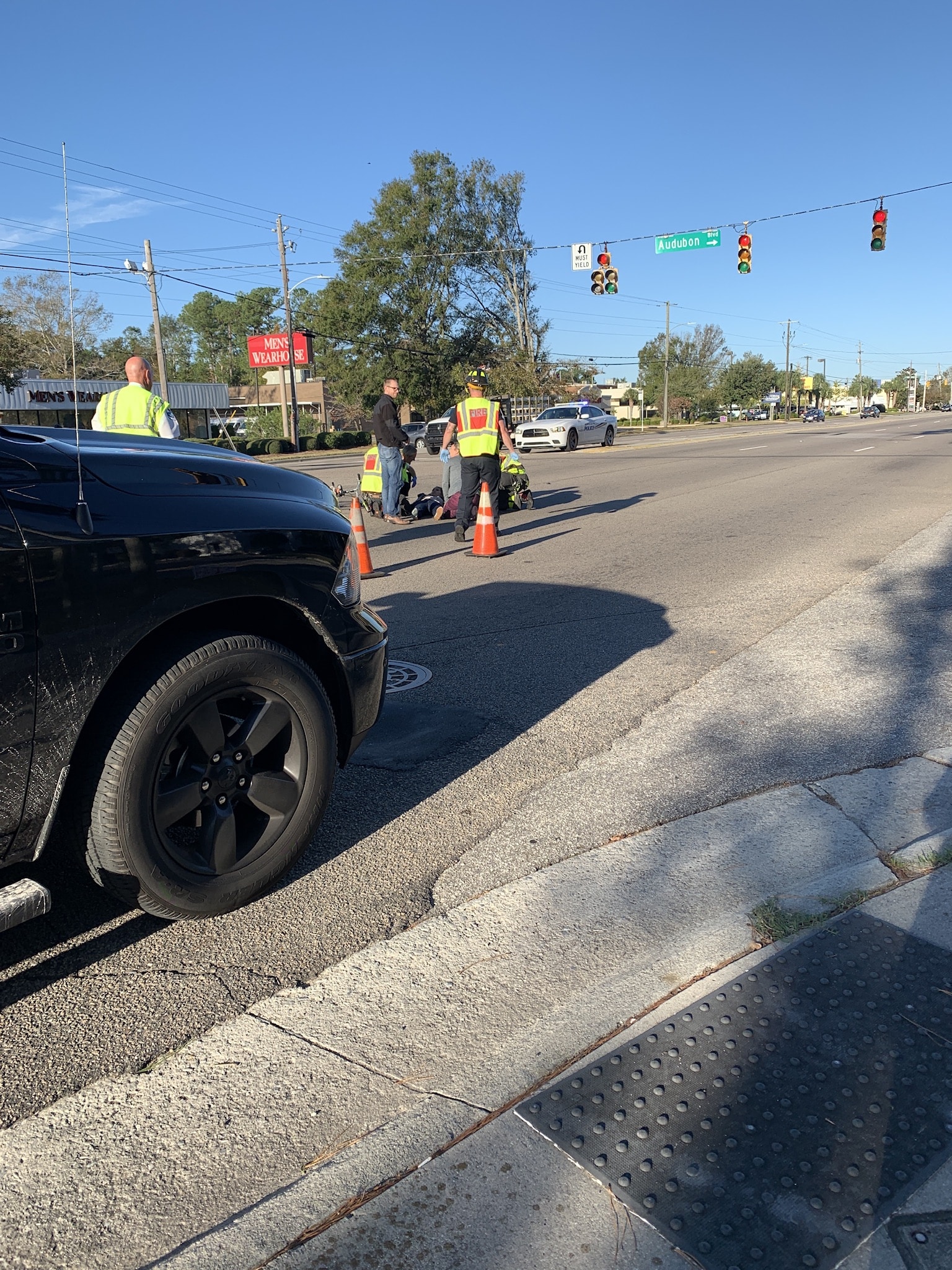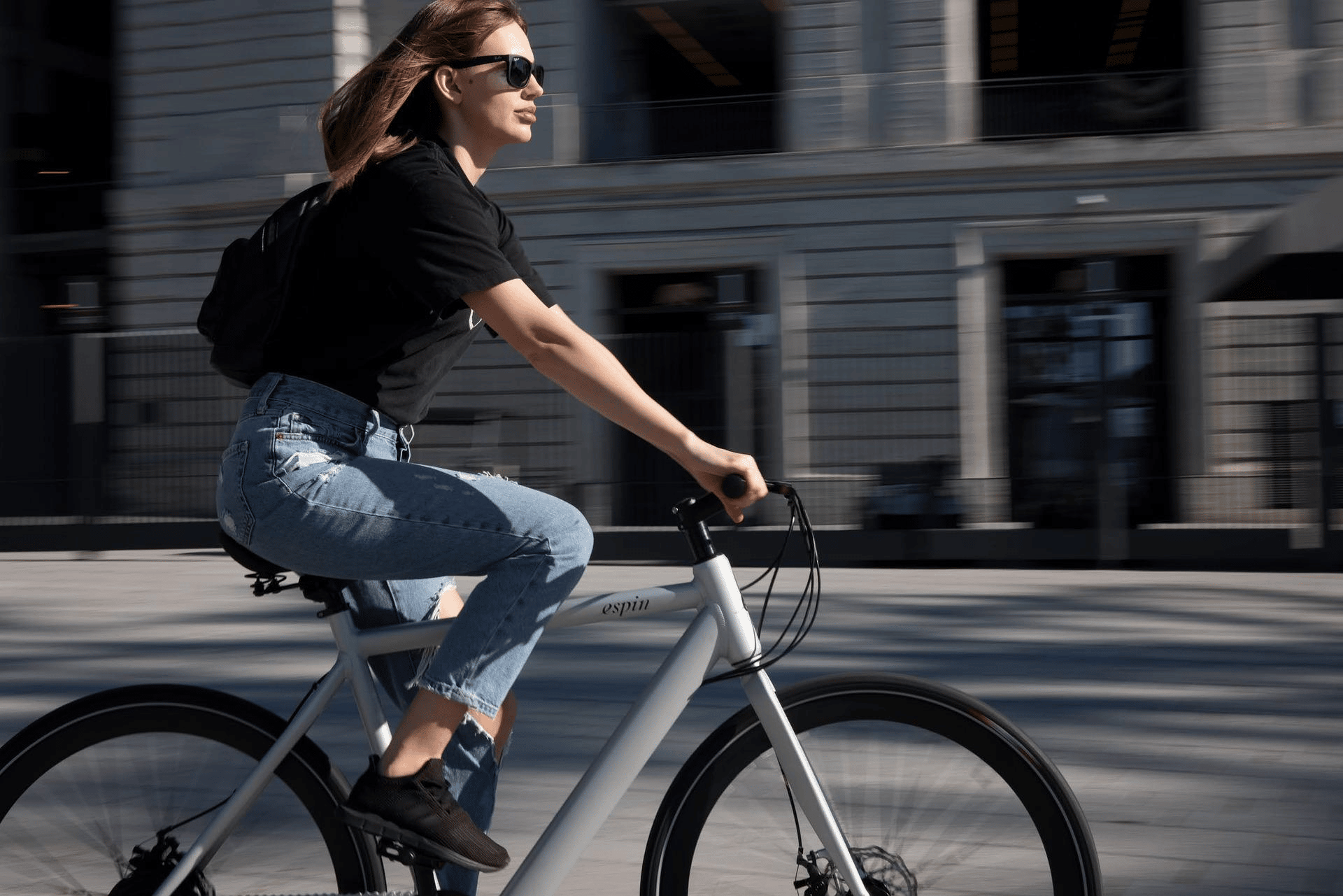Too often, those sworn to protect us don't.
One of our great challenges to making cycling safer is to change the public’s mindset so that bicycles are expected and accepted on the road. This change will be difficult to achieve unless it is first embraced by those whose job it is to serve and protect the public – police.
On my Saturday morning ride today, I heard a story with an all too familiar theme. A cyclist was riding his bike on Charlotte’s Booty Loop when a truck drove up and began to harass him, intentionally tailgating and buzzing the cyclist. It happened that another car, driven by cyclists, drove up. The second car saw what was happening, took a picture of the truck and its plate and then signaled to the harassing driver that they were going to report him. The angry truck driver then started chasing the cyclist drivers. They called 911 and were told to drive to a safe place, which they did, the harassing truck drove off and they were met by a Charlotte Police officer. When the officer heard the story and learned it involved a cyclist, he said, “you guys shouldn’t be riding on the road anyway” and refused to take any further action. He didn’t at all care that the truck driver’s outlet for his road rage was to pit his two ton vehicle against a person’s body.
On the topic of callous police behavior, the story on everyone’s mind this week was the announcement that the Los Angeles County police officer who killed a cyclist last year while driving and emailing will not face criminal charges. Although texting and driving is illegal in California, the police department has a policy requiring officers to respond immediately to colleagues, which is what Wood was doing. Prosecutors explained their decision: “because Wood (the officer) was acting within the course of his duties when typing into his computer, criminal charges are not warranted.” Really? It’s ok for officers to perform administerial duties even when doing so risks the lives of the very public they are obligated to protect?
There are many wonderful police officers; some who ride and others who don’t but respect the law and the equal rights of cyclists to use the road. But there is a disconnect. Unfortunately, many in law enforcement exhibit the same callousness we see in the general public toward cyclists. The “satirical” video created by a reserve Santa Paula California Police Officer a few months ago about running over cyclists is, though extreme, sadly just one of many demonstrations of the attitude that people on bikes deserve what they get, even if caused by egregious driver behavior. This has to stop.
One, all police officers need to receive training specifically on the rights of cyclists and the law pertaining to cyclists. We’ve conducted many such course, often to snickering. It is amazing how many of them do not know, for example, that North Carolina has no law requiring cyclists to ride single file, let alone that single file all the way to the right is usually the least safe way to ride. When arriving at a crash scene, most officers do not understand or know how to report the cyclist’s actions.
Two, police departments must implement a zero tolerance policy against harassing behavior or intolerance toward cyclists. It’s sad that such a policy is necessary; you would think a mandate to protect the public would be enough, but apparently it is not. Again, many of my North Carolina clients are grateful for the diligent efforts of the officers who responded to their crash scenes. Unfortunately, there are too many instances where officers see a cyclist involved and suddenly don’t care. The gap must be closed.
Three, police departments need to have strict policies prohibiting unnecessarily dangerous driving activity by their officers. Failure to implement and enforce distracted driving policies endangers cyclists as well as the general public. This is not just about cyclists, folks, it’s about everyone behaving in a way that respects the lives and well-being of everyone around us. Police should be setting an example for the rest of us.
If you have a negative interaction with an officer while riding your bike (or defending a cyclist) it is likely that officer’s department wants to know about it so they can correct it. Report the officer to his or her superiors and keep going up the chain until you are satisfied someone is listening. Put your complaint in writing if necessary. If you need help, call us at Bike Law. We interact frequently with police and may have a cyclist-friendly contact.

North Carolina lawyer and Bike Law founder, Ann Groninger, has advocated at the state level on behalf of bicyclists in North Carolina for over 15 years. Ann has offices in Charlotte and Durham and has helped bike accident clients in Asheville, Raleigh, Durham, Greenville, Wilmington, Fayetteville, and throughout the state. Read more about Ann on her bio page.










